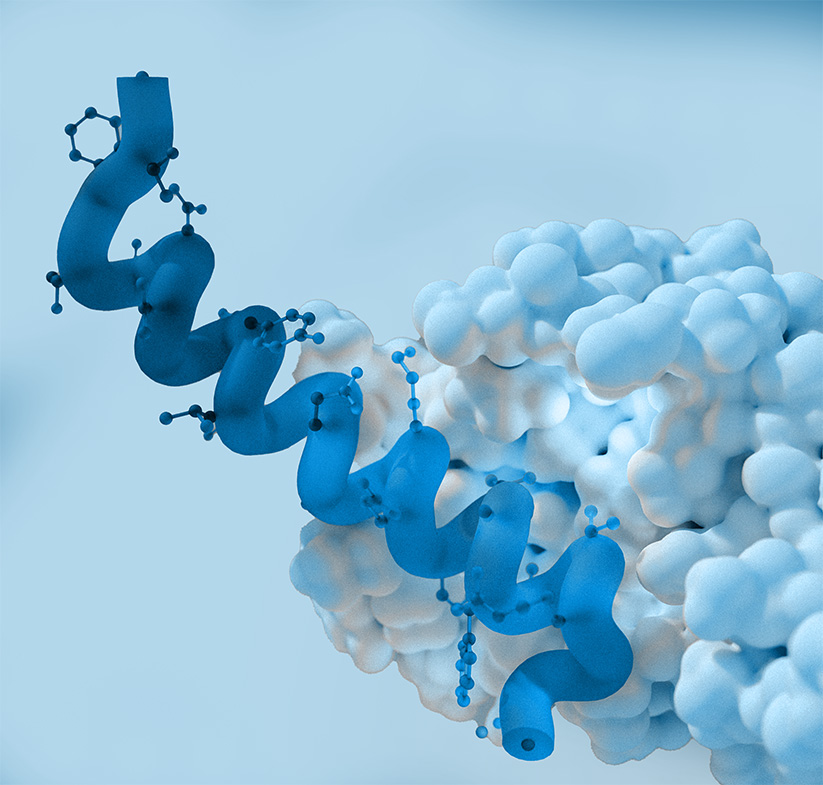UNLEASHING THERAPEUTIC PEPTIDES ON INTRACTABLE TARGETS
At Sapience Therapeutics, we tackle what others have deemed unachievable. Transcription factors, key drivers of oncogenesis and immune suppression, have eluded conventional therapies due to their structural complexity and inaccessibility deep within cells.
Our SPEARs™ (Stabilized Peptides Engineered Against Regulation) change that by targeting these high-impact proteins with precision and effectiveness. Designed to address the unique biology of transcription factors, our therapeutic peptides open doors to treatments that were once unimaginable.
Our SPARCs™ (Stabilized Peptides Against Receptors on Cancer) open up additional avenues in the cancer armamentarium. While groundwork for the radiopharma industry has been laid using small and large molecule targeting moieties, peptides are more fit-for-purpose. Optimized for extracellular delivery, SPARCs provide an opportunity for safe, targeted delivery of radioisotopes to specifically kill cancer cells.
With our biology-first approach, we’re not just redefining druggability—we’re delivering new possibilities.
TURNING BIOLOGICAL COMPLEXITY INTO CLINICAL IMPACT


SMALL MOLECULES
- Penetrate cell membrane
- Not able to modulate PPIs
- Significant on/off target toxicity
- Non-immunogenic
ANTIBODIES
- Too large to penetrate cell membrane
- Able to modulate PPIs
- Variable toxicity
- Potentially immunogenic
SPEARs PEPTIDES
- Penetrate cell membrane
- Able to modulate PPIs
- Well tolerated
- Non-immunogenic
Drugging transcription factors requires an approach that acknowledges and works with their complexity. From understanding the interactions within a protein complex to deep consideration of potential on and off-target effects, biology defines every step of our process.
By prioritizing biological relevance, Sapience consistently develops clinically viable SPEARs that selectively target transcription factors. Using bespoke peptide screening libraries informed by deep expertise and cutting-edge AI tools, we design peptides tailored to the target’s unique chemistry and biology. We further ensure that candidates are effective and can translate to clinical success by screening our peptide libraries within natural cellular environments. This biology-led approach minimizes risk and maximizes impact, proving that transcription factors are now within reach.
A PRECISION PAYLOAD DELIVERY SYSTEM
Radiopharmaceuticals hold immense potential but are often limited by toxic effects on healthy tissues. Our SPARCs address this challenge by delivering these powerful therapies directly to cancer cells.
Targeted to tumor-specific cell surface proteins, SPARCs provide a safe and precise way to escort radioactive payloads through the body.




